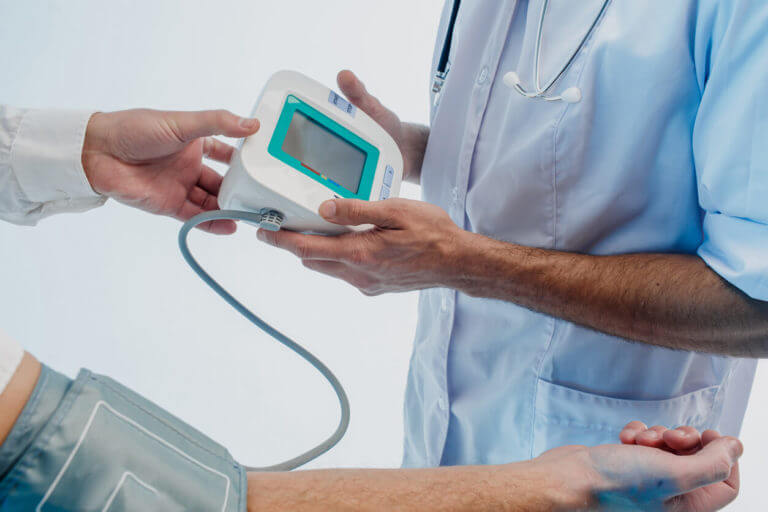
Heart disease is one of the leading causes of death worldwide, but early detection can save lives. For many people, early symptoms of heart disease can be subtle or easily mistaken for other conditions. By identifying warning signs and undergoing specific medical tests, patients can receive timely treatment.
If you or a loved one is at risk for heart disease, it is crucial to understand how medical tests can help. This article highlights the top medical tests for heart disease that doctors use.
1. Electrocardiogram (ECG or EKG)
An electrocardiogram is one of the simplest and most widely used medical tests for heart disease. Small electrode pads are placed on the chest, arms, and legs to record electrical signals from the heart.
This test measures electrical activity. This helps detect irregular rhythms (arrhythmias), heart attacks, and other abnormalities. An ECG is often the first test that doctors recommend for assessing heart health. It is non-invasive, painless, and provides immediate results.
2. Echocardiogram
An echocardiogram is an ultrasound of the heart. It uses sound waves to create detailed images showing the heart’s structure and function.
A handheld device called a transducer is moved across the chest to produce real-time images of the heart. This test can reveal issues such as fluid around the heart, heart valve problems, or the weakening of heart muscles. It provides valuable insights into how well the heart pumps blood.
3. Stress Test
Patients who may not show symptoms of heart disease while at rest often undergo a stress test. This test measures the heart’s performance during physical exertion.
The patient performs cardiovascular exercise on a treadmill or stationary bike during a stress test. While doing this, their heart activity is monitored using an ECG. For those who cannot exercise, medication is given to simulate stress on the heart.
Stress tests can identify issues such as blocked arteries or restricted blood flow. These things might not be apparent during inactivity.
4. Coronary Calcium Scan
A coronary calcium scan checks for calcium buildup in the arteries that supply blood to your heart. Calcium in these arteries can be a sign of atherosclerosis or coronary artery disease. The test uses a special kind of CT scan to take clear pictures of your heart and blood vessels. These images help doctors see if calcium deposits are present.
This scan is a helpful way to spot early signs of heart disease, even if you do not have any symptoms yet. It is recommended for people with risk factors like smoking or a family history of heart problems.
5. CT Coronary Angiogram
A CT coronary angiogram gives a detailed view of the arteries that carry blood to your heart. It helps doctors find blockages or areas where the arteries may be too narrow, which could cause heart problems.
This test creates detailed, 3D pictures that help doctors detect and treat problems early, often before symptoms start to show. During the test, a special dye is injected into your bloodstream. This dye helps the CT scanner create clear images of your heart’s arteries. It makes it easier to spot any issues.
6. Blood Tests
Blood tests provide essential clues about heart health. Measuring specific markers in the blood can help detect heart disease risks or early warning signs.
Key markers include:
- Cholesterol levels (high LDL and low HDL levels can increase the risk of plaque buildup)
- C-reactive protein (CRP) (indicates inflammation, which may contribute to heart disease)
- Troponin levels (elevated after heart damage or a heart attack)
- Blood sugar levels (to rule out or detect diabetes, a key heart disease risk factor)
These medical tests for heart disease are quick and minimally invasive. They provide important data that assists doctors in creating personalized treatment plans.
7. Holter Monitoring
Holter monitoring helps detect irregular heart rhythms. It also detects other issues over an extended period, usually 24 to 48 hours. A portable ECG device is worn during daily activities to record heart activity continuously.
This test is useful for individuals who experience intermittent symptoms. This includes palpitations, chest discomfort, or dizziness.
8. Cardiac MRI
A cardiac MRI uses strong magnetic fields and radio waves to create detailed images of the heart. It provides a comprehensive view of both the structure and function of the cardiovascular system. The patient lies inside an MRI machine, which creates images over several minutes.
This non-invasive test can pinpoint a wide range of heart problems. It can detect a lot of information, from congenital heart defects to damage caused by a prior heart attack.
9. Nuclear Stress Test
A nuclear stress test uses radioactive tracers and a special imaging camera. It helps assess blood flow to the heart when at rest and during physical exertion. The tracers are injected into the bloodstream, and a camera tracks their movement through the heart.
This test is effective in showing blockages. It can also reveal reduced blood flow that may point to coronary artery disease.
Thorough Medical Tests for Heart Disease in West Orange, NJ
Heart disease can often develop without noticeable symptoms. By undergoing early medical tests, patients gain valuable information about their heart health. In turn, they can take proactive measures to prevent complications. Regular screenings are important for those with family histories of heart disease or other risk factors. The Hudson MD Group offers comprehensive medical expertise and cutting-edge diagnostic tools.
As the best medical group in NJ, you can trust us if you need medical tests for heart disease. If you are concerned about your heart health or want to schedule an evaluation, our expert team is ready to help. Do not wait for symptoms to appear; consult an interventional cardiologist near you today. Prioritize your heart health by calling us at (973) 705-4914, or request a consultation today.
The top cardiologist in NJ is ready to serve you!
Sources:
https://my.clevelandclinic.org/health/diseases/24129-heart-disease
https://my.clevelandclinic.org/health/diseases/21493-cardiovascular-disease
https://www.mayoclinic.org/diseases-conditions/heart-disease/diagnosis-treatment/drc-20353124
https://my.clevelandclinic.org/health/diagnostics/16984-exercise-stress-test
https://my.clevelandclinic.org/health/diagnostics/22207-cardiac-blood-tests
https://my.clevelandclinic.org/health/diagnostics/16947-echocardiogram


